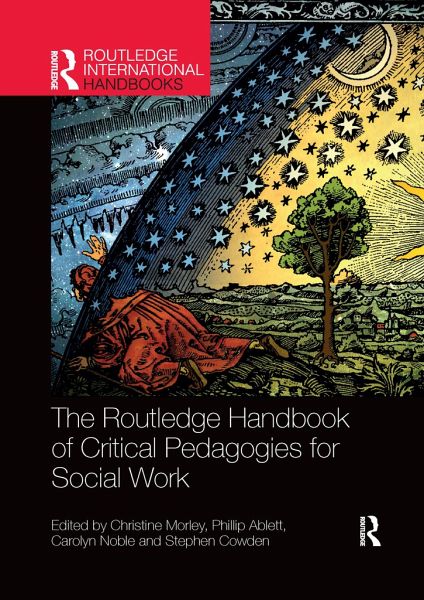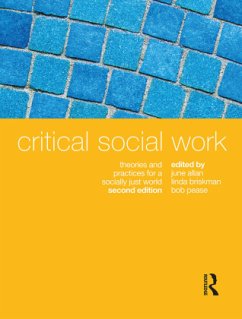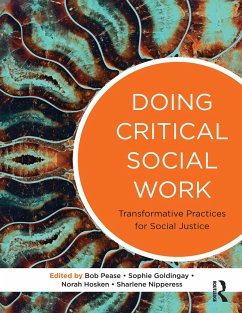
The Routledge Handbook of Critical Pedagogies for Social Work
Versandkostenfrei!
Versandfertig in 6-10 Tagen
51,99 €
inkl. MwSt.
Weitere Ausgaben:

PAYBACK Punkte
26 °P sammeln!
The Routledge Handbook of Critical Pedagogies for Social Work traverses new territory by providing a cutting-edge overview of the work of classic and contemporary theorists, in a way that expands their application and utility in social work education and practice; thus, providing a bridge between critical theory, philosophy, and social work.Each chapter showcases the work of a specific critical educational, philosophical, and/or social theorist including: Henry Giroux, Michel Foucault, Cornelius Castoriadis, Herbert Marcuse, Paulo Freire, bell hooks, Joan Tronto, Iris Marion Young, Karl Marx, ...
The Routledge Handbook of Critical Pedagogies for Social Work traverses new territory by providing a cutting-edge overview of the work of classic and contemporary theorists, in a way that expands their application and utility in social work education and practice; thus, providing a bridge between critical theory, philosophy, and social work.
Each chapter showcases the work of a specific critical educational, philosophical, and/or social theorist including: Henry Giroux, Michel Foucault, Cornelius Castoriadis, Herbert Marcuse, Paulo Freire, bell hooks, Joan Tronto, Iris Marion Young, Karl Marx, Antonio Gramsci, and many others, to elucidate the ways in which their key pedagogic concepts can be applied to specific aspects of social work education and practice. The text exhibits a range of research-based approaches to educating social work practitioners as agents of social change. It provides a robust, and much needed, alternative paradigm to the technique-driven 'conservative revolution' currently being fostered by neoliberalism in both social work education and practice.
The volume will be instructive for social work educators who aim to teach for social change, by assisting students to develop counter-hegemonic practices of resistance and agency, and reflecting on the pedagogic role of social work practice more widely. The volume holds relevance for both postgraduate and undergraduate/qualifying social work and human services courses around the world.
Each chapter showcases the work of a specific critical educational, philosophical, and/or social theorist including: Henry Giroux, Michel Foucault, Cornelius Castoriadis, Herbert Marcuse, Paulo Freire, bell hooks, Joan Tronto, Iris Marion Young, Karl Marx, Antonio Gramsci, and many others, to elucidate the ways in which their key pedagogic concepts can be applied to specific aspects of social work education and practice. The text exhibits a range of research-based approaches to educating social work practitioners as agents of social change. It provides a robust, and much needed, alternative paradigm to the technique-driven 'conservative revolution' currently being fostered by neoliberalism in both social work education and practice.
The volume will be instructive for social work educators who aim to teach for social change, by assisting students to develop counter-hegemonic practices of resistance and agency, and reflecting on the pedagogic role of social work practice more widely. The volume holds relevance for both postgraduate and undergraduate/qualifying social work and human services courses around the world.














